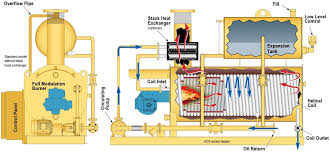
Dec . 04, 2024 10:31 Back to list
What fuels are used in biomass boiler systems for heating applications
What Do Biomass Boilers Run On?
Biomass boilers are increasingly gaining popularity as an eco-friendly heating solution for both residential and commercial properties. They are part of a broader movement toward renewable energy, which seeks to lessen our dependency on fossil fuels and reduce greenhouse gas emissions. But what do biomass boilers actually run on? In this article, we’ll delve into the types of biomass fuel commonly used, their benefits, and how biomass boilers operate.
Understanding Biomass Fuel
Biomass fuel refers to organic materials that can be used as fuel to produce energy. The products typically fall into a few categories
1. Wood-Based Fuels This is the most common type of biomass fuel. It includes wood pellets, wood chips, and logs. Wood pellets are particularly popular due to their high energy density and ease of storage. They are made from compressed sawdust and are uniform in size, which allows for efficient combustion and minimal ash production.
2. Agricultural Residues These include leftover materials from crops, such as straw, corn stalks, and sugarcane bagasse. Utilizing these residues helps to reduce waste and provides an additional revenue stream for farmers.
3. Energy Crops These are specially grown plants intended for energy production. Examples include miscanthus and switchgrass. They are typically cultivated on marginal land that might not be suitable for food crops, thereby promoting sustainable land use.
4. Organic Waste Biomass boilers can also run on organic waste, including food waste and yard clippings. This form of fuel is advantageous as it contributes to waste reduction and provides an efficient way to convert waste into usable energy.
Benefits of Biomass as Fuel
Using biomass as a fuel source offers several advantages
what do biomass boilers run on

- Carbon Neutrality Biomass is considered carbon neutral because the carbon dioxide released during combustion is roughly equal to the amount absorbed by the plants during their growth. Hence, while it does emit carbon dioxide, it does not significantly increase the overall concentration of greenhouse gases in the atmosphere.
- Waste Reduction Utilizing agricultural and organic waste for energy contributes to waste management efforts. Instead of being sent to landfills, these materials are transformed into fuel, reducing environmental impact.
- Energy Security Biomass can help diversify energy sources. By tapping into locally sourced materials, regions can reduce their dependence on imported fossil fuels. This is particularly important for countries aiming for energy independence.
- Support for Rural Economies The biomass sector can create jobs in rural areas. From the cultivation of energy crops to the processing and distribution of biomass fuels, the industry can stimulate economic growth in communities.
How Biomass Boilers Work
Biomass boilers operate similarly to conventional gas or oil boilers but are designed to burn biomass fuel instead. The process begins with the fuel being fed into the combustion chamber. As the biomass burns, it releases heat, which is used to heat water. This hot water can then be circulated through a central heating system to warm buildings or provide hot water for other uses.
Many modern biomass boilers are equipped with automated feeding systems that optimize the combustion process by ensuring the right amount of fuel is fed into the chamber. Additionally, these systems can be fitted with sophisticated controls to monitor temperature and emissions, further enhancing efficiency and minimizing environmental impact.
Conclusion
In summary, biomass boilers run on a variety of organic materials, primarily sourced from wood, agricultural residues, energy crops, and organic waste. They offer a sustainable heating solution that not only contributes to reducing greenhouse gas emissions but also promotes waste recycling and supports local economies. As the world continues to transition towards greener energy solutions, biomass boilers are well-positioned to play a significant role in the future of heating and energy production. Whether used in homes or industrial settings, they are a testament to the potential of renewable energy sources to provide effective and sustainable heating solutions.
-
Comprehensive Guide to Steam Boiler Installation Diagram – Global Best Practices and Future Trends
NewsNov.24,2025
-
A Practical Guide to the Selection of Steam Boiler for Industrial Efficiency
NewsNov.23,2025
-
Comprehensive Guide to Steam Boiler PDF Manuals and Their Global Impact
NewsNov.22,2025
-
Discover How Steam Boiler Videos Improve Industrial Training & Safety
NewsNov.22,2025
-
Comprehensive Guide to Wood Fired Steam Boiler Design – Efficiency, Applications, and Innovations
NewsNov.21,2025
-
Comprehensive Guide to Steam Boiler Working – Efficiency & Applications
NewsNov.20,2025
Related PRODUCTS






















